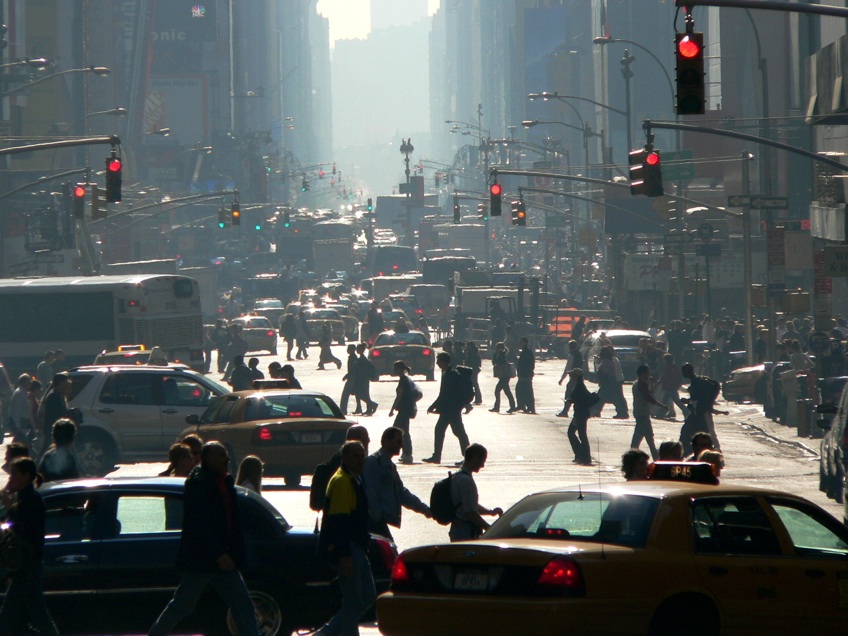Anyone familiar with the work of Ivan Illich understands the significance he attributed to the notion of scarcity. Education, Illich concluded, was learning under the assumption that valuable knowledge is scarce. High-energy transport, measured in units such as miles-per-hour and miles-per-gallon, assumes that time and space and fuel are scarce. Walking and cycling, in contrast, do not involve space that is scarce. Modern service institutions, he explained, actually create scarcity when clients, as they inevitably seem to do, demand more services than the institutions are able to deliver. (Exhibit No. 1: The current medical care system and the ongoing debate over Medicare and the affordability of health insurance.)
Indeed, scarcity lurks beneath every discussion of "resources," whether that word is used to describe workers in a corporation or fuel as a source of energy to drive the economy or fresh water as something for which global demand seems to be outstripping available supplies.
In short, scarcity is the basis for all economic thought, which Illich contrasted with "the good" and how things fit with each other. In the late 1970s, he proposed writing a "history of scarcity," and many of his subsequent papers worked at developing that theme.
In a world of scarcity-based economics, which historically is quite new, many things suffer. "Where scarcity rules," Illich wrote in "The Wisdom of Leopold Kohr," "ethics is reduced to numbers and utility. Further, the person engaged in the manipulation of mathematical formulas loses his or her ear for ethical nuance; one becomes morally deaf.
"Ethics, in a strong tradition from Aristotle to Mandeville, involved a public controversy about the good to be pursued within a human condition and perhaps grudgingly accepted. Economics, however, demands the evaluation of desirable goals under the assumption of scarcity. It deals in the optimization of values; this leads to the creation of modern economic society, which provides seemingly unlimited fuel for a technological civilization. Such a civilization attempts to transform the human condition rather than debate the nature of the human good."
Late last year, it seems, a book was published under the title The Limits of Scarcity. It's a collection of papers edited by a Lyla Mehta, a sociologist who studies climate change, water, sanitation, and yes, scarcity.
We mention this book not because it is the last word on scarcity - there is no scarcity of thought on scarcity, we're quite sure - but because one of its essays is written by two people in the Illich circle, Jean Robert and Sajay Samuel. Their contribution is titled "Water runs and ought to run freely: reflections on 'scarcity' in economics." What appears to be the full text of this essay, albeit marked up with some alterations that are not entirely self-evident, is available at a site called ECOMUNIDADES, which appears to be based in Mexico. (It's subtitle, translated as best we can: Red Independent Ecological network of the River basin of Mexico. Economic contraction [?] or barbarism!") The Robert-Samuel paper builds on Illich's thoughts about "the good," as formulated by Aristotle and about "needs" and scarcity, and his contrast of commons versus resources, especially as seen in the changing laws regarding the use and diverting of naturally flowing water.
Meanwhile, a review of Ms. Mehta's scarcity book can be read here and the text of her introduction is available here. She describes her book as an attempt to explore the social construction of scarcity, "to question scarcity’s taken-for-granted nature and assumptions. While not denying that scarcities exist for many and that our planet is in peril (not least due to the wanton overexploitation of resources and climate change), our contention is that scarcity is not a constant variable that can be blamed for all our woes. Instead, we need to be aware of the politics of allocation and the ways in which scarcity is politicized, especially to suit the interests of powerful players."
She writes: "Part I discusses why scarcity matters and provides a review of diverse disciplinary understandings of scarcity. It also discusses the profound implications of scarcity politics by drawing on the energy policy and the vast reach of neo-Malthusianism in the USA. Part II engages with diverse perspectives of scarcity within economics. Modern (neo-classical) economics is premised on scarcity in many different ways. The essays in this section ask where this came from, what the impacts are and considers both mainstream and heterodox perspectives of scarcity within economics. Part III turns to empirical concerns and traces scarcity politics in the domains of food, water and energy."


No comments:
Post a Comment